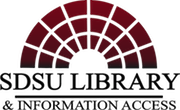We've Moved!
Visit SDSU’s new digital collections website at https://digitalcollections.sdsu.edu
- Oral Histories
Interview with Sig Mickelson, transcript part 1, 1979
Digital Item
Lisa System Manager
This item is active and ready to use
MICKELSONSIGTRANS1
Interview with Sig Mickelson, transcript part 1, 1979
1979-03-13
Enter a free text date.
Interviewer: Heighton, Elizabeth; Transcriptionist: Heinz, Catharine
Sig Mickelson, a broadcasting pioneer often referred to as "the man who invented TV news," was born on May 24, 1913. In 1943, he landed a job at CBS News and quickly rose through the ranks. He became the first director of CBS television news and was credited for hiring such journalists as Edward R. Murrow, Walter Cronkite, and Charles Kuralt. Mickelson also coined the term "anchorman" during the watershed 1952 summer political conventions, the first time a TV news station ever provided "gavel to gavel" coverage of such an event. Over the next two decades, Mickelson would add many industry firsts to his list of accomplishments, and continued to serve in high-profile positions including VP of Time-Life Broadcast Inc., and President of Radio Free Europe/Radio Liberty.
Mickelson came to the SDSU campus for three years (1979-1981). He served in two capacities: as the Executive Director for SDSU's Center for Communications, and as a Distinguished Visiting Professor of Journalism in the Department of Telecommunications and Film. Mickelson died on March 24, 2000 at the age of 86.
Mickelson came to the SDSU campus for three years (1979-1981). He served in two capacities: as the Executive Director for SDSU's Center for Communications, and as a Distinguished Visiting Professor of Journalism in the Department of Telecommunications and Film. Mickelson died on March 24, 2000 at the age of 86.
Elizabeth Heighton; Sig Mickelson; Interviews; Oral histories; Visiting lecturers; WCCO; CBS; CBS News; Time, Incorporated; The Electric Mirror (book); Encyclopaedia Britannica Educational Corporation; Medill School of Journalism; Radio Free Europe/Radio Free Liberty; KSOO; Louisiana State University; University of Minnesota; Frank Stanton; Racism; Antisemitism; Segregation; Neither Free Nor Equal (documentary); Arrows in the Dust (documentary); Radio and Television News Directors Association; NARND; Dave Taylor; William S. Paley; Hubbell Robinson; Ed Chester; People's Platform (television program); Capitol Cloakroom (television program); Federal Communications Commission freeze; Douglas Edwards; Walter Cronkite; WTOP; Jack Van Volkenburg; Don Hewitt; Telenews; Liederkranz Hall; Telecine; Auricon cameras; Briefing Room (television program); John Foster Dulles; Tom Gallery; Dumont Television; KPIX; John Hayes; Guy Gabrielson; Bill Mylander; Jack McKibbin; Westinghouse Manufacturing
- Oral Histories
English
Text
59 pages
Yes
MICKELSONSIG; MICKELSONSIGTRANS2; fs-me-my-024; LVD-053; fs-me-my-025
further keywords: Ketchum, Macleod, and Grove Advertising; Ed Parrack; Bill Hylan; Pittsburgher (train); Henry Cabot Lodge; Bob Mullen; Paul Hoffman; Dwight D. Eisenhower; Robert A. Taft; Paul Levitan; Orville Sather; Sino-Japanese Peace Treaty (1952); Robert Trout; Betty Furness; Paul Wittlig; Arthur Godfrey; Coronation of Queen Elizabeth (1953); Norman Collins; Kinescopes; Moviola editing machines; Bill Lodge; General Precision Laboratories; Willys-Overland Motors; Charles Curran; Royal Canadian Air Force; Paul Taft; James "Jimmy" Stewart; Joe Di Bono; Bill McClure; See It Now (television program); Grand Central Terminal; Don Hewitt; Acme News Pictures; Hear It Now (radio program); Edward R. Murrow; The Eagle's Brood (documentary); Fred Friendly; Columbia Records; Ritz Hotel (New York City); Annie Lee Moss; McCarthyism; Blacklisting; Red Channels; Bob Heller; Allan Sloane; Martin Luther (television program); Winston Burdette; Dan O'Shea; James Eastland; Internal Security Subcommittee; Howard Smith; Bill Downs; Dan Hollenbeck; New York Journal American; Joseph McCarthy; James Hagerty; Face the Nation (television program); Nikita Kruschev; Vyacheslav Molotov; Daniel Schorr; Ted Koop; Irv Gitlin; John Day (CBS); Earl Newsom & Company; Bill Lidgate; Chuck von Fremd; Scott Res;ton; Press conferences; Jim Aubrey; KNXT; Television ratings; Television news; 1952 Republican convention; 1956 Democratic convention; Paul Butler; John F. Kennedy; Television coverage; Re-creations; Little Rock Central High School (1957); Homer Bigart; Sit-ins (1960); Federal Communications Act of 1934; George Herman; Fairness Doctrine; Dave Wolper; John B. Medaris; Armstrong Circle Theatre (television program); Bob Foreman; BBD&O; BBDO; American Gas Association; Judgment at Nuremberg (television program); Deregulation
- San Diego State University Library and Information Access, Special Collections and University Archives
Document
PDF
143.12 MB
Bookmark this page https://digital.sdsu.edu/view-item?i=358773

